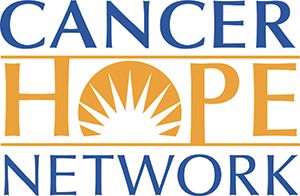
You've Been Matched, Now What? Finding Connection And Hope While Dealing With Cancer

Having someone to talk to through the cancer journey is vital, especially when that person is a fellow survivor that can understand the challenges of treatment.
Cancer Hope Network matches often begin shortly after diagnosis — but they can happen at any point during a cancer experience. They may involve only a conversation or two – or evolve into long-term mentoring that lasts through treatment and beyond. Sometimes, matches even become friends.
We recently talked with clients who’ve been matched and are pleased to share what the Cancer Hope community has made possible. Thanks to you, those clients are finding hope, courage and perspective.
“The best experiences I had was talking to people who had the same experience I had,” remembers Angela, who spoke with Support Volunteer Suzanne not long after her multiple myeloma diagnosis. “She was further along, and it was nice to hear that there was light at the end of the tunnel.”
Angela is now doing well and is volunteering in her local community. But she’s never forgotten the help she received. “I thought it was going to be this way forever. After talking to my Support Volunteer and connecting with people at my local Cancer Support Community, there were people who’d been where I was. They gave me hope.”
For other patients, speaking with a volunteer who’s not part of their circle of support has been especially freeing. “I needed to talk to others and then to my family after my second surgery,” recalls CHN client Major. “My Support Volunteer was very understanding and knowledgeable. We talked every three or four weeks. I was encouraged and uplifted.”
For some people, reaching out is easy. For others, it takes time. That was Joyce’s experience after she was diagnosed with glioblastoma. “I didn’t want to talk to anyone else,” she recalls. “I was still in shock and depressed.” When she was ready to call, she ended up speaking with two survivor volunteers. “I am impressed by the organization’s ability to match us up so well. On paper, both were perfect. I needed that hope.”
Her connection with Support Volunteer Tom, in particular, was a connection that resonated. “Tom was wonderful. Tom was perfect — on paper and personality-wise. He is a caring, selfless person. He’s somebody that I hopefully keep in touch with.”
For others, their volunteer is helpful in navigating life during therapy. To Tom, a bladder cancer patient who is still undergoing treatment, connecting with a mentor felt natural. “I’ve always reached out to other people to make as meaningful connections as I can in my business world. When I got sick, I applied the same approach. Who has relevant experience and is inclined and has put themselves forward with generosity and kindness? Who is willing to help me go through the challenges they faced?”
He was matched with Support Volunteer Zoe, and the results have been wonderful. “She reached out to me. We spent some time on the phone and have emailed,” Tom says. “She’s so unbelievably generous and detailed and thorough and obviously knowledgeable. She’s also very funny.”
Her kindness has been an inspiration. “I’ve got a long way to go, but I’m on my way to becoming a volunteer myself.”
Some matches continue after active treatment has ended. That’s true for Joyce and her Support Volunteer, David, whose match has lasted into her survivorship. “I was considered cured, but still have a lot of anxiety,” she says.
“Cancer changed things. I was anxious in the first place, but cancer ratcheted it up. I so look forward to David’s calls. He is so calming and comforting. I never fail to get off the phone with him without feeling relief, support and genuine caring. David genuinely cares about me and I know that.”
However long they last, no matter when they begin, being matched with a Support Volunteer can make life with cancer — as a patient, a caregiver or a loved one – a bit easier. Thank you for making it possible.
Visit www.blog/cancerhopenetwork.org to read these and other stories of hope.
Sarah Miretti Cassidy is the Director of External Affairs for Cancer Hope Network. She has spent more than 20 years in nonprofit work — as an ally and advocate, marshaling volunteers and resources for a better world. She has been a cancer caregiver and is trained as a hospice and Support Volunteer.




